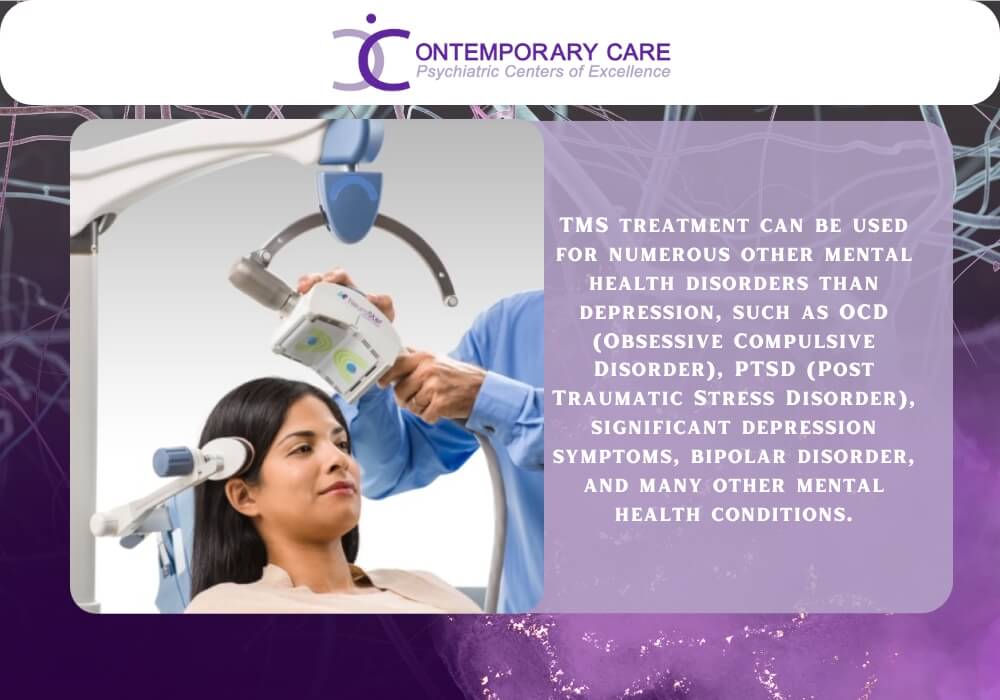 HARO Backlinks – Get Cited Like a Pro in Top Media!
HARO Backlinks – Get Cited Like a Pro in Top Media!
Who Can Benefit From TMS Therapy? A Guide to Eligibility and Effectiveness
Written by k » Updated on: June 17th, 2025 189 views

Transcranial Magnetic Stimulation, commonly known as TMS therapy, is a revolutionary treatment option for individuals struggling with mental health disorders, particularly major depressive disorder (MDD). Unlike traditional therapies, TMS therapy utilizes magnetic fields to stimulate nerve cells in the brain, offering a non-invasive approach to treatment. As mental health awareness grows, so does the need to understand the potential benefits of TMS therapy and who can take advantage of this cutting-edge treatment.
In this comprehensive guide, we will explore who can benefit from TMS therapy, delve into the eligibility criteria, and assess the effectiveness of this innovative therapeutic option. By the end of this article, readers will have a thorough understanding of TMS therapy and whether it might be suitable for themselves or their loved ones.
Understanding TMS Therapy
Before diving into the specifics of who can benefit from TMS therapy, it’s essential to understand what it is and how it works. TMS therapy involves the use of magnetic fields to stimulate nerve cells in specific areas of the brain involved in mood regulation. The treatment is administered via a device that generates magnetic pulses, which are delivered to the scalp, targeting the prefrontal cortex.
How Does TMS Therapy Work?
Mechanism of Action: The magnetic pulses generated during TMS therapy induce small electrical currents in the brain. This stimulation can help activate underactive areas of the brain associated with mood regulation, thereby alleviating symptoms of depression and anxiety.
Non-Invasiveness: One of the most significant advantages of TMS therapy is that it is a non-invasive procedure. Unlike surgical interventions or medications that can have systemic side effects, TMS therapy targets specific brain areas without affecting the rest of the body.
Sessions and Duration: A typical TMS therapy session lasts about 20-40 minutes, with patients often undergoing treatment five days a week for four to six weeks. The exact duration may vary based on individual needs and response to treatment.
Who Can Benefit from TMS Therapy?
1. Individuals with Major Depressive Disorder
TMS therapy is primarily indicated for individuals diagnosed with major depressive disorder (MDD) who have not found relief through traditional treatment methods. This group includes:
Individuals who have not responded adequately to at least one antidepressant medication.
Patients who experience significant side effects from antidepressants, making them unable to tolerate these medications.
Individuals who prefer a non-medication treatment option for managing their depression.
2. Those Suffering from Treatment-Resistant Depression
Treatment-resistant depression (TRD) refers to cases where patients have tried multiple antidepressants without achieving satisfactory results. TMS therapy can be a game-changer for these individuals, providing a new avenue for relief. Studies indicate that TMS therapy can be effective for patients with TRD, often resulting in significant improvements in mood and overall quality of life.
3. Patients with Anxiety Disorders
While TMS therapy is most well-known for its application in depression, research has shown promising results for individuals with anxiety disorders as well. Conditions such as generalized anxiety disorder (GAD) and post-traumatic stress disorder (PTSD) may also benefit from TMS therapy, particularly when traditional therapies have failed.
4. Individuals with Obsessive-Compulsive Disorder (OCD)
OCD can be a debilitating condition that significantly impacts daily functioning. Emerging research suggests that TMS therapy may help reduce obsessive thoughts and compulsive behaviors, providing relief for those who have not responded to conventional treatments.
5. Patients with Chronic Pain Conditions
There is growing interest in the use of TMS therapy for chronic pain conditions, such as fibromyalgia and migraine. Since chronic pain often coexists with mental health issues like depression and anxiety, TMS therapy can address both the psychological and physical aspects of these conditions.
6. Those Seeking an Alternative to Medication
For individuals who are hesitant to take medications due to fears of side effects or dependency, TMS therapy offers a viable alternative. It provides a non-invasive treatment option that can help alleviate symptoms without the complications often associated with pharmacological treatments.
Eligibility Criteria for TMS Therapy
Not everyone is a candidate for TMS therapy. Here are some key eligibility criteria to consider:
1. Diagnosed Mental Health Disorders
To qualify for TMS therapy, individuals typically need to have a formal diagnosis of a mental health disorder, such as major depressive disorder, anxiety disorders, OCD, or PTSD.
2. Previous Treatment Attempts
Most clinics require that candidates for TMS therapy have attempted other treatments, such as medication and psychotherapy, without satisfactory results. This criterion helps ensure that TMS therapy is pursued as a next step for individuals with treatment-resistant conditions.
3. Absence of Certain Medical Conditions
Individuals with certain medical conditions may not be eligible for TMS therapy. This includes those with:
Metal implants in the head, neck, or face (e.g., pacemakers, aneurysm clips, or cochlear implants).
A history of seizures or epilepsy, as TMS therapy can potentially trigger seizures in susceptible individuals.
Severe psychiatric conditions like bipolar disorder or psychosis, as these conditions may require different treatment approaches.
4. Age Considerations
While TMS therapy is generally safe for adults, its efficacy and safety in children and adolescents are still being studied. Most clinics will have age limits for treatment, typically recommending it for patients over the age of 18.
Effectiveness of TMS Therapy
1. Clinical Studies and Success Rates
Numerous clinical studies have demonstrated the effectiveness of TMS therapy in treating major depressive disorder and other mental health conditions. Research indicates that approximately 50-60% of patients with treatment-resistant depression experience significant improvement after undergoing TMS therapy.
2. Long-Term Outcomes
While many patients experience rapid improvements in symptoms, the long-term effectiveness of TMS therapy can vary. Some individuals may require ongoing maintenance sessions after their initial treatment course to sustain the benefits.
3. Patient Experience and Feedback
Many patients report positive experiences with TMS therapy, citing improvements in mood, energy levels, and overall quality of life. Most describe the procedure as comfortable, with minimal side effects, making it an appealing option for those seeking relief from their mental health struggles.
4. Comparisons with Other Treatments
When compared to traditional antidepressant medications, TMS therapy offers several advantages:
Fewer Side Effects: Unlike medications that can cause weight gain, sexual dysfunction, or gastrointestinal issues, TMS therapy typically has minimal side effects.
No Systemic Effects: Since TMS therapy is localized to the brain, it does not have the same systemic effects as medications, making it a safer option for some individuals.
Conclusion
TMS therapy represents a significant advancement in the treatment of mental health disorders, particularly for individuals struggling with major depressive disorder and those who have not found relief through traditional methods. By understanding who can benefit from TMS therapy, the eligibility criteria, and its effectiveness, patients and their families can make informed decisions about their treatment options.
If you or someone you know is seeking relief from mental health challenges, consider discussing TMS therapy with a qualified mental health professional. This innovative treatment could be the key to unlocking a brighter future.
Call to Action: If you want to learn more about TMS therapy or find a clinic near you, don’t hesitate to reach out to a mental health professional or visit a dedicated TMS therapy provider. Your path to recovery could begin with a simple conversation.
Note: IndiBlogHub features both user-submitted and editorial content. We do not verify third-party contributions. Read our Disclaimer and Privacy Policyfor details.
Copyright © 2019-2025 IndiBlogHub.com. All rights reserved. Hosted on DigitalOcean for fast, reliable performance.
















